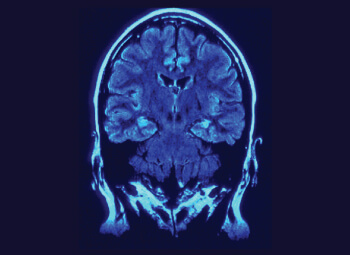Have you noticed that our generation seems to be the most aware of “brain health”? Maybe it’s because previous generations never “paid it much mind,” no pun intended.
But with brain health proponents like Dr. Daniel Amen vigilantly reminding us on PBS that the brain is indeed worth protecting, and that we can take steps now to do just that, the responsibility is ours to become proactive about our cognition just as we are about our bodies.
Meanwhile, scientists work urgently to develop medications to cure Alzheimer’s, which affects nearly 5 million people in this country. Experts predict that number will be 13 million by 2050. Recently, two new studies offered hope, while making no promises for “now.”
Predicting the future

Signs of familial Alzheimer’s disease—a relative “timeline”—may be detected as soon as 25 years before memory loss begins, according to a study from Washington University School of Medicine. The protein beta amyloid can be seen to drop in brain images of those who develop Alzheimer’s. The study, which evaluated “presymptomatic markers” in subjects predisposed to develop the disease, was published in the New England Journal of Medicine.
What’s so great about this? Currently, medications to treat the disease are given only after it is progressed and brains are too far gone to recover. The findings may have wide application in development of medications that could potentially nip the disease in the bud—since scientists have known that it begins many years before detection.
Stem cell restoration
In related news, StemCells, Inc. said its proprietary human neural stem cells, taken from fetal brain tissue, restored memory and enhanced function in rodents that had an Alzheimer’s-like condition. Researchers noted that this is the first time human neural stem cells have been shown to have a significant effect on memory, and they suggested possible transplantation of these cells into the brains of Alzheimer’s patients.